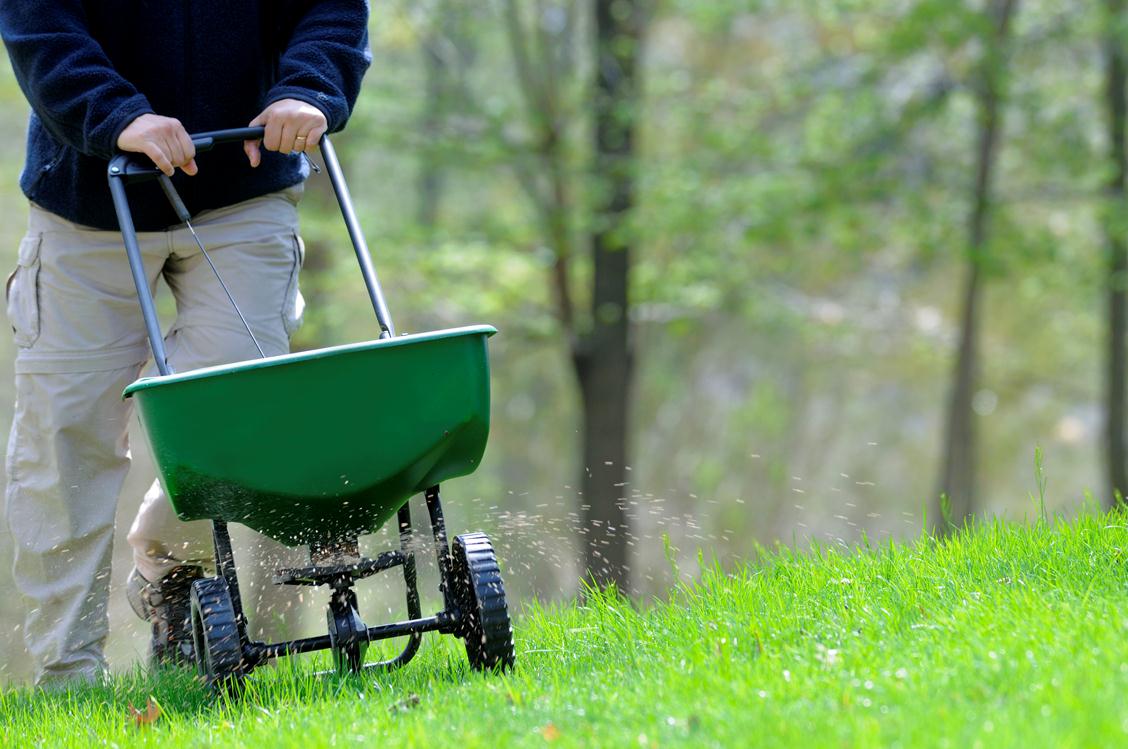Commercial Preventative Maintenance

A commercial lawn is more than soil and turfgrass. Once the grass takes root, spreads, and becomes established, the grass and soil form an intricate relationship, creating a living carpet that can be negatively affected by many different problems. Some of these, such as fertilizer burn, show up quickly and blatantly. Others, such as thatch buildup, become worse slowly. To catch any problem before it has the chance to profoundly stunt the growth of your lawn, look a little deeper than the surface for preventative maintenance. A thorough inspection by are highly trained professionals at Atlanta Lawn Care Services, Inc. of your lawn starts with slicing out a chunk of the turf and soil and taking a good, hard look in profile, with an eye to all the potential trouble spots.
We’ll also look at the base of your grass plants. Thatch buildup can slowly choke out your grass and needs to be remedied before you have a severely weakened lawn that has no energy to prevent opportunistic weeds from taking over. Are the crowns of the plants healthy and producing stolons, rhizomes or tillers? Stunted growth may point to a number of problems.
Of course, what happens below the surface is just as important. A side view of your soil will tell you if pests are trying a sneak attack, or if the lawn is becoming overly compacted from too much foot traffic. Check soil texture to make sure it is not too dense or too loose. This is also your chance to ensure that your grass plants are growing a deep, interconnected, healthy root system.
Whether you find problems or not, Atlanta Lawn Care Services will provide a basic inspection of your commercial property’s lawn structure and determine what is going on above and below the surface. That’s what makes us one to the top companies to work with; we’ll get a head start on any problems that do exist before they pop up.
Commercial Lawn Preventative Maintenance Services:
• Fighting Weeds
• Defeating Harmful Insects & Pests
• Dealing with Lawn Diseases
• Improving Site Conditions
There are many ways to classify weeds. Like turfgrasses, there are warm-season and cool-season weeds. A warm-season weed flourishes in the heat of summer, while cool-season species actively grow in spring and fall. Either kind may be found in either season of lawn.
Another useful grouping in terms of heading off weeds before they grown is into annuals, biennials, and perennials.
Annuals – Like annual flowers, annual weeds live their entire life in one growing season. The classification is a little deceptive, however, because of an annual weed matures and produces seeds, new annual weeds will arrive next year. This means you can break the cycle by simply disrupting the creation, dissemination, or germination of those seeds. Common annuals include prostrate knotweed and annual bluegrass.
Biennials – Biennials have a two-year lifecycle. They spend the first year using all their energy to grow, setting down strong roots and establishing themselves in the soil. The second year is focused on flowering and setting seed. These are tough plants to eradicate, because if you don’t kill or remove the first-year root, they will come back with flowers and seeds in year two. Mallow is a common biennial and a familiar interloper in many lawns.
Perennials – Perennial weeds live for multiple years. They will continue through a cycle of dormancy and active growth, and may even fool you into thinking you’ve eradicated them. Some perennials spread through rhizomes and stolons, making them even more difficult to permanently remove from the lawn. The secret is to kill the whole plant, preferably before they flower and set seed. Dandelion and Creeping Charlie are two common perennials.
In addition to their growth periods, weeds are classified based on appearance: Broadleaf weeds have relatively wide leaves with branching veins. Many have conspicuous flowers. Narrow-leafed weeds have grass-like leaves with parallel veins. Dandelion and oxalis are two common broadleaf weeds, while Bermuda grass (in cool-season lawns) and crabgrass are examples of narrow-leaf weeds. The distinction is important because they respond to different herbicides.
Let our team of professionals at Atlanta Lawn Care Services, Inc. help you with a preventative maintenance program to help maintain a healthy and beautiful commercial lawn year round.
call us at!





